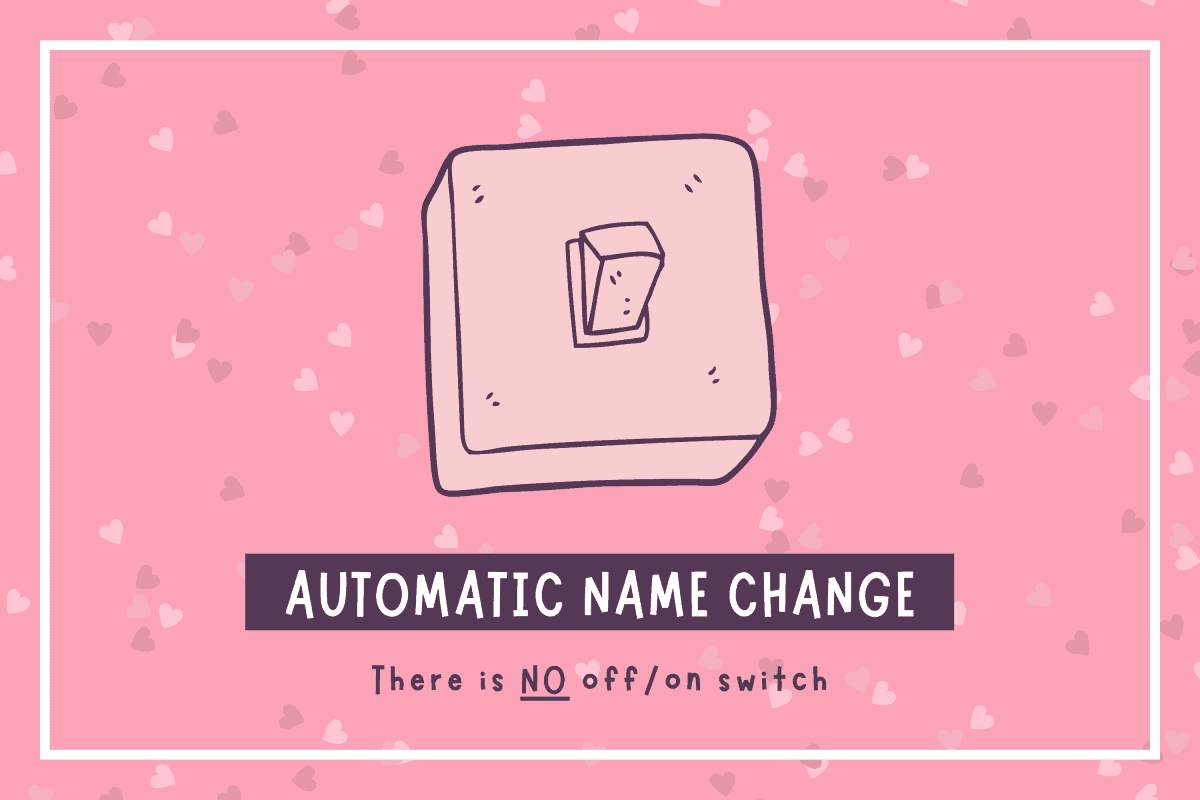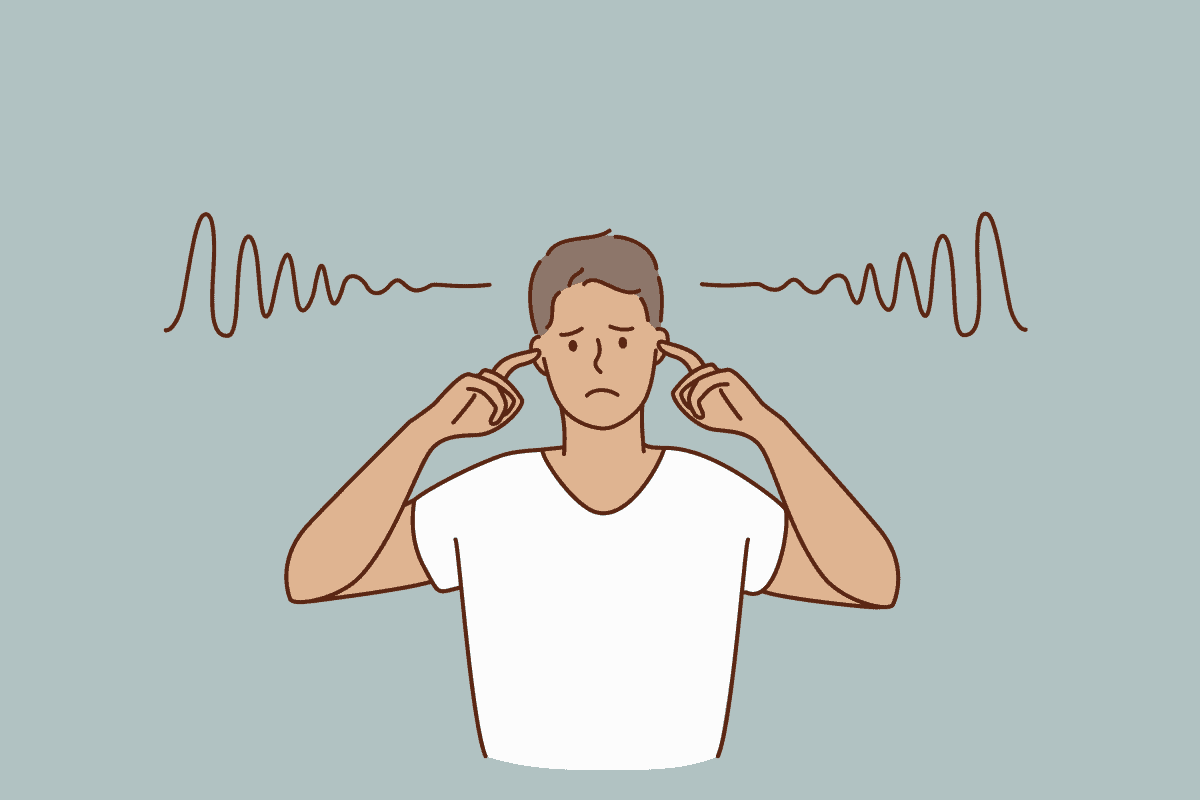Does Your Name Automatically Change After Marriage?

Is name change after marriage an automatic process, leaping into action the moment you apply for a marriage license or walk down the aisle?
Is it triggered by your marriage application, license, certificate, or ceremony?
- Well, you can rule out the application.
- Getting a marriage license has no legal bearing.
- Saying "I do" does zero.
- Receiving an official marriage certificate does zilch.
Signing your new name on your license or certificate does zippo. The marriage clerk, court clerk, judge, or officiant is powerless to effect change.
That is a slew of nothing happening.
So when does something happen, and is it automated?
Is name change an automatic process?
No, your name won't automatically change after getting married. You must take deliberate and manual steps to put your name change in motion.

Not only is name change through marriage not automatic, it's not automatic through divorce, court order, or adoption either.
Great, end this ridiculous article now!
There's no good reason to devote an entire write-up to this simple question, right? Everyone knows—even intuits—the answer must be no.
Here's the thing… We've written diverse pieces covering the gamut on name change. Visitors have posted thousands of comments and questions across this website.
With that much commentary, you notice patterns. This question continues coming up, whether the focus is on hyphenating names or swapping out middle names or whatever else.
A dedicated post we can point to is warranted.
Fine! Asked and answered! Shut it down!
Bear with us, as this "automatic" question is peculiar and recurrent. To ask must assume that name change is self-executing.
And reactions fall into one of four buckets:
- Good—Lovely, less work for me.
- Bad—Crummy, as I'm not sure I'm ready for this.
- Neutral—Not great, not terrible. What does this process entail?
- Horrifying—Oh, no! Too fast, too soon, I'm not ready!
In our experience, most who pose this question falsely believe name change after marriage is indeed automatic. Like a real-life version of The Elves and the Shoemaker.
Yet name change is no fairy tale:
- IDs won't update and reissue themselves.
- Government records won't update themselves.
What manifests a name change into legal reality?
For your name change to take actual legal effect, you must report your new name to the proper agencies, using their assigned forms, with physical proof of name change and ID.
Those are the three tangibles:
- Completed forms
- Evidence of name change
- Identification in your current name
Disregard magical, ambiguous, hands-off language
Any document or certificate that "declares your name changed" or states your name change "takes effect after the marriage ceremony" holds little weight itself.
Terms such as orders, declares, restores, and decrees paint an incomplete picture by wrongly implying your new name becomes active the moment you marry or divorce.

The above-mentioned declarations only mean your proof of name change document—e.g., marriage certificate, divorce decree, court order—empowers you to change your name.
This authorization document satisfies government agencies, even if your new name doesn't appear on the document itself.
But authorization doesn't equal action, as name change is optional after marriage, divorce, or other means. Action is when you file your name change forms.
Legalistic vs. realistic name change
There are three core name change events: marriage, divorce, and court order. For the sake of argument, let's accept that each event caused a legal change of name.
That's what a statute, certificate, or court may claim or suggest?
But that is legalese. It's not reality. In the real world, your name is not legal in practice until you've updated credentials, such as your social security card.
You're the reporter
You're the only one who may begin your name change proceedings. Not your officiant, your spouse, a lawyer, a judge, or a marriage license clerk or recorder.
Not the marriage license office
If you return your marriage license for recording after the ceremony, the receiving clerk won’t notify the Social Security Administration (SSA) of your new name.
Not the divorce court
If you get divorced and ask the judge to restore your maiden name, neither the judge nor the court clerk will notify the DMV of your name change.
However, if you don't request the restoration, you might close off the option of changing your name through the divorce process.
Instead, you may need to request a divorce decree amendment (if allowed by the court) or pursue a court-petitioned name change.
Not the court court
If you petition the court for a legal name change, and they grant your court order after the newspaper publication and hearing, no court member will alert the passport office.
It's you! It has always been you!
You are the one:
- You must launch everything yourself.
- You are the broadcaster, the instigator, the originator.
No one else can do it, because only you may legally sign your new name. And your new signature is required on every governmental name change form.
What's the tipping point? (Beware the cascade!)
Now that we've made clear your name won't change just from the act of getting married, divorced, or petitioning the court, is there a tipping point?
Further, when you start your name change, does it then become automatic by setting off a chain reaction, like the well-known mousetrap and ping-pong ball fission demo?
In some instances, yes.
The governmental cascade
For example, when you change the name on your social security card, the SSA will automatically alert the IRS of your new name.
You cannot stop this action.

That is why you should time your SSA name change to fit within your tax filing schedule. Otherwise, a name mismatch might cause delays with your tax return.
The private sector cascade
Another example is changing the name on your credit cards will get reported to the three credit bureaus—i.e., Equifax, Experian, and TransUnion—for recording in your credit report.

This is a rapid-fire, computerized procedure:
- Even one credit card name change will start the process.
- This happens automatically without your input.
- This routine is unstoppable.
Every other agency or entity is oblivious
Most other name changes are isolated and need your intervention, such as a driver's license, REAL ID, state-issued ID card, military ID card, passport, and non-governmental entities.

Those accounts will never know your name changed unless you tell them. Like those Japanese Imperial Army holdouts who didn't know WWII ended decades earlier.
You could even renew your passport using the current name it has now, whether in your maiden name or another name, and you wouldn't be breaking any rule.
Conclusion
Name change after marriage isn't automatic as long as you don't make the first move. But if you update your social security card or a credit card, you'll start the ball rolling.
2 Comments